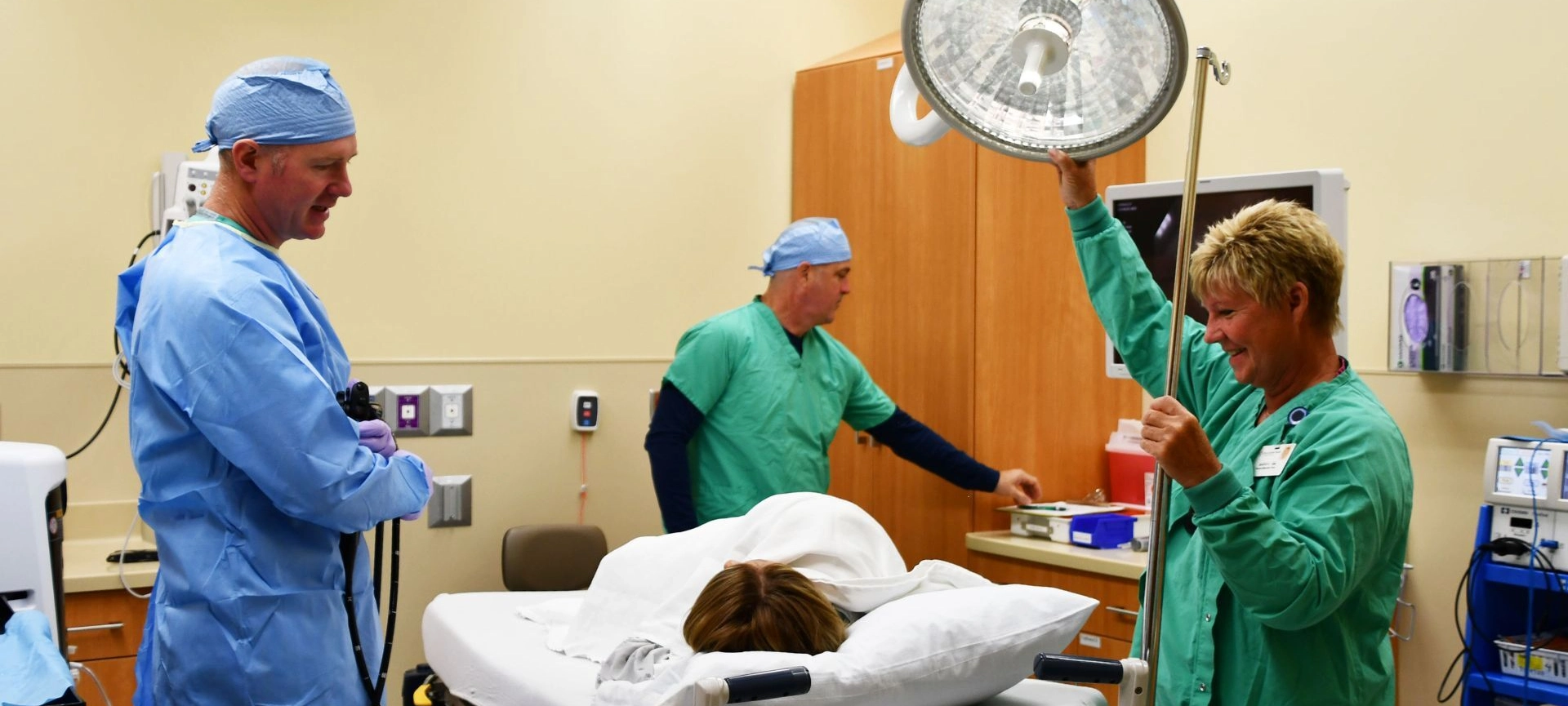

Colonoscopy
A colonoscopy is a common, outpatient procedure used to check for polyps, abnormal tissue, or signs of colorectal disease.
The Importance of Early Detection
The American Cancer Society and the U.S. Preventive Services Task Force recommends starting colorectal cancer screening at age 45 for people who are at average risk and don’t have symptoms. People with other risk factors like a family history of colorectal cancer or certain bowel conditions may need to start screening earlier or more frequently. Early detection is key to preventing colorectal cancer. Talk to your primary care provider about scheduling a colonoscopy.
Commonly Asked Questions:
A colonoscopy is an exam that uses a thin, flexible tube with a camera inserted into the rectum that allows your doctor to see inside your colon and rectum. The camera allows your doctor to look for polyps or other abnormalities and examine the overall health of your colon. The procedure typically lasts 30–60 minutes.
Various conditions that affect the large intestine can be detected and diagnosed with the help of a colonoscopy:
- Colorectal cancer
- Inflammatory bowel disease (IBD)
- Diverticular disease
- Bleeding or anemia
- Other symptoms such as abdominal pain, chronic diarrhea, constipation, weight loss, or bowel irregularity
Many insurance plans and Medicare help pay for colorectal cancer screening tests. Check with your plan to find out which tests are covered for you. To find out about Medicare coverage, call 1-800-MEDICARE (1-800-633-4227), or visit www.medicare.gov.
Preparing for you colonoscopy
Your surgeon will provide instructions before your procedure to help you prepare. Please find our educational material below for general guidelines about colonoscopy prep. Always follow your surgeon’s instructions before a colonoscopy for the best guidance for you. Your exact preparation steps may vary based on your doctor’s recommendations or your reason for having a colonoscopy. If you have questions for our surgery team, call our surgery scheduling line at 712-722-8374.
General Surgeons



Contact Us
We're here for you.
Give us a call at (712) 722-1271 or explore more ways to connect with us. We're happy to help — anytime, any way we can.
